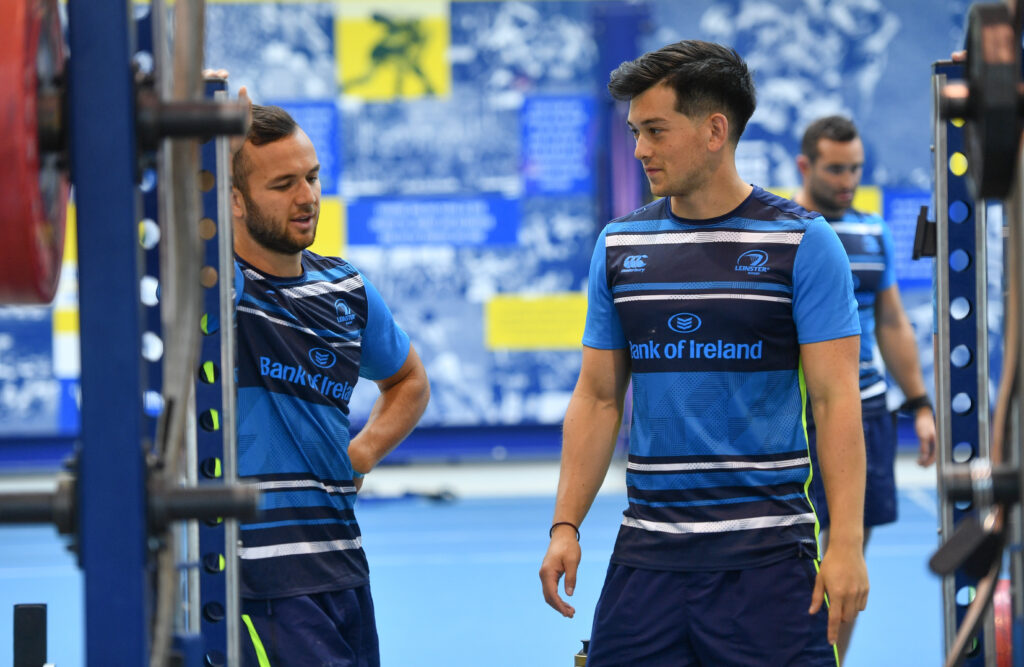What makes the biggest impact when it comes to recovery strategies and tools for runners? Dr. Peter Tierney is a health and performance researcher, consultant, and coach who’s worked with many professional sports organizations to help athletes recover effectively from exercise.
Peter is an expert in physiology and performance and holds a PhD in Sports Science from University College Dublin. His background covers work as a strength and conditioning coach for elite athletes, a sports scientist, and a performance coach for professional sports organizations across Europe.
Peter’s worked with the 4-time European champ LIEnSTAR Rugby team and football (soccer) teams like the England Football Team.
Health and Performance Researcher Peter Tierney on the Most Impactful Recovery Strategies for Runners

Every runner needs to prioritize recovery as a part of training. But there’s a lot of noise in media about which recovery strategies are most beneficial to runners, and it can be hard for athletes to determine which recovery tools will provide the best impact on their health and performance.
Peter’s “Big 5” recovery strategies are science-backed and possible for runners to add to their training and lifestyle. He shares recovery tools like Time, Sleep, Stress Reduction, and more, including why they’re important, how to focus on the most impactful optimizations, mistakes to avoid, and insights on not overthinking any of these recovery strategies.
In this episode, Peter and I talk about:
- What does true recovery mean, anyway?
- How recovery is part of a lifestyle, not just strategies immediate after exercise.
- The Big 5 recovery strategies for runners and endurance athletes, and how to use them.
- How time, sleep, nutrition, hydration, and stress management can support the use of other recovery strategies, such as supplements and active recovery.
- Adaptation vs. performance as recovery outcomes in endurance athletes.
- Running training density, two-a-days, and recovery.
- Tips for better sleep strategies for runners, from mindset to bedroom set-up.
- Nutrition for running recovery, including carbohydrate and protein intake and efficient fueling strategies.
- Balancing running and life stressors for optimal performance.
- Reconfiguring training plans to align with life commitments and strategic recovery.
- Hydration and electrolyte balance for runners and the link to recovery.
- How runners sometimes get overwhelmed by recovery, and we can simplify it.
- How socializing with friends and family can be an effective recovery tool.
If you’re already wondering whether your current recovery tactics are helping you perform better and stay healthy, this episode will give you great recovery strategies to start implementing today.
Subscribe to the podcast in Apple Podcasts, Spotify, Stitcher, iHeartRadio, or Google Play
Links & Resources from the Show:
Thank you AG1!
We’re also supported by AG1, the greens superfood mix. This is a category-leading greens mix that has 75 vitamins and minerals, prebiotics, probiotics, antioxidants, and adaptogens. It’s recommended by professional athletes and has over 7,000 positive reviews.
One scoop per day is what I’ve been doing to help me fill in any nutrition gaps in my diet. It also provide a nice boost of energy and focus throughout the day. With all 3 of my kids in school, I know I need to support my immune system or else I’m getting sick and can’t train.
I also love that AG1 has changed over the last decade. They’ve made 53 improvements to the formula based on the latest research to make these nutrients more absorbable and rigorous with the 3rd party testing that they do.
For our listeners, they are offering a year’s worth of free Vitamin D and 5 free travel packs of AG1 with your first purchase. You can sign up for single shipment or for a monthly drop – the choice is yours. Check out AG1 to redeem your offer today.
Thank you The Performance Training Journal!
The Performance Training Journal is now available on Amazon and debuted as the #4 new release in the running category. Since I started running in 1998, I’ve kept a hardcopy training journal. Holding a tangible log, writing in it daily, and reflecting on the ups and downs of running is a surefire way to improve.
This hardcopy training journal helps you focus on the training metrics that matter, prioritizes a long-term outlook so you don’t take any shortcuts, and maintains your motivation with strategic self-praise. With a no-frills, functional design, the Performance Training Journal includes coaching advice on racing, injury prevention, strength training, and more. It will guide you through race scheduling, how to plan your race morning, the best workouts for endurance runners, and encourage you to track your personal bests over time.
You have the space to make this journal your own whether you’re a new runner or a professional, a trail or road runner, or a mid-distance specialist or ultra marathoner. So don’t just track your running, learn from it with the Performance Training Journal! Check it out today on Amazon.
